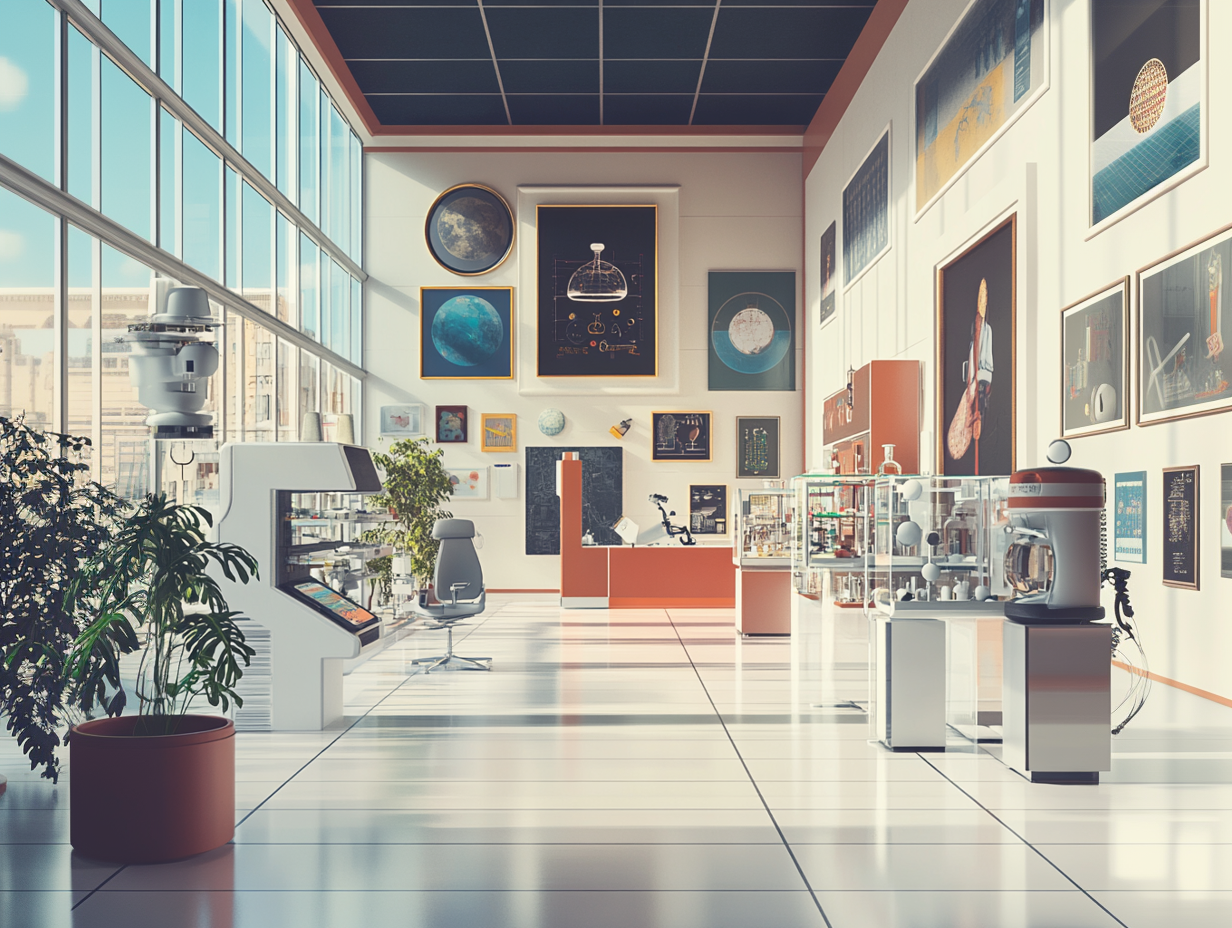March 11, 2020 was the day that Covid-19 escaped the realm of the theoretical and became frighteningly, imposingly real. In the morning, the World Health Organization officially declared Covid-19 a pandemic. That night, following an Oval Office address during which President Trump announced a European travel ban, the NBA pulled the Utah Jazz off the court after a player tested positive and suspended its regular season.
Every subsequent hour, it seemed, another domino fell. The stock market. Broadway. Tom Hanks.
We woke up on March 12 to a torrent of cancellations, alarms and dire forecasts. For many children, that was the last school day for months; for many adults, the kitchen table was about to become a satellite office.
My own experience, in retrospect, was extremely fortunate. While my father fell ill during the pandemic’s early weeks – click here for the story of how my then five-year-old son injected levity via a strategically timed anatomic discovery – ultimately I was able to work and function more or less normally. Things never got too dark or desperate: At no point did I attempt to bake my own bread.
Five years after Covid changed the world as we know it, Kinara asked 10 life sciences leaders to weigh in on their pandemic-era experiences. The thoughts and opinions below belong to the authors alone and do not reflect those of their employers.
–Larry Dobrow
How did Covid change the life sciences business writ large?
Stacy Stone, executive director, omnichannel and customer engagement, Pacira BioSciences: Covid-19 fundamentally changed the pharmaceutical industry by demonstrating that remote and digital engagements can be just as effective as traditional in-person interactions when done correctly. It showed that digital channels are not only crucial when physical access is restricted – such as during the pandemic’s strict protocols – but also remain essential even after those restrictions are lifted. The industry shifted away from the belief that face-to-face meetings were the only effective way to connect, and COVID pushed companies to recognize the value of remote and digital interactions as complementary to in-person engagements.
Kelly Duffort, omnichannel brand liaison, Sobi North America: In pharma marketing, Covid definitely accelerated a shift to more non-personal promotion. One-to-one meetings between HCPs and sales reps weren’t happening, and no one could predict when they would resume. Thus pharma marketers dove into optimizing ways of reaching HCPs via email marketing, digital advertising, webinars, journal ads and more.
The ways in which Covid changed pharma marketing are undeniable. Sales rep meetings with HCPs are possible again, but they are not at the frequency or duration that they were before the pandemic.
Alison Tapia, former senior director, performance marketing and digital innovation, Dermavant: The pandemic accelerated the adoption of digital technologies in pharma. Telemedicine, virtual clinical trials and AI-driven drug discovery became essential to advance patient care and streamline R&D during lockdowns and social distancing. The pandemic led to a surge in demand for certain medications, such as antiviral drugs and immune boosters. Pharma had to adapt to these changing market dynamics, prioritizing the production of essential medicines to meet the increased and urgent demand.
Will McMahon, director of omnichannel strategy, AstraZeneca: Public perception of the pharmaceutical industry fluctuated during the pandemic, reflecting changing societal attitudes and the political context over time. As a result, Covid left a mixed legacy on the pharma industry, introducing both lasting impacts and intermediate shifts that are still evolving into durable trends. The industry’s response to the pandemic drove a bigger focus on health equity, access, affordability and sustainability, acknowledging and responding to the extensive global disruption experienced by patients, customers and communities.
Judy Stewart, principal, Bar27 Consulting and former SVP, head of US vaccines, GSK: From a positive perspective, the world became more aware of the important work and scientific innovation that pharma does, especially in the vaccine space. Demonstrating the ability to create, test, manufacture at scale and distribute both vaccines and medicines quickly and safely during a global pandemic was strong proof of concept for why pharmaceutical companies are needed.
At the same time, Covid also highlighted how politics can impact the entire healthcare ecosystem in each country, both positively and negatively. The length of the pandemic made many people more wary and more hesitant over time, creating a fatigue with vaccines. In the long term, I think this could be detrimental to keeping low levels of vaccine-preventable diseases.
Avinash Prabhakar, director of HCP marketing, hematology, GSK: We tried many ways to convert our promotional efforts to virtual, but live, in-person visits are back to being the predominant way reps interact with doctors. Sales reps continue to outperform every other promotional activity tenfold.
How did Covid change the way you and your team work?
Arber Shehu, medical director, AstraZeneca: Before the pandemic, my work was deeply rooted in direct patient interaction. As a physician treating patients in underserved areas of Kosovo, being physically present was essential – not only for patient care but also for collaboration with colleagues. Given the resource constraints in these settings, face-to-face interactions were crucial for making decisions, solving problems and providing hands-on care. Even when I transitioned out of clinical practice two years before the pandemic to pursue advanced studies, real-time, in-person collaboration remained the norm. Whether through phone calls or direct meetings, teamwork was built on presence and personal engagement.
The onset of Covid-19 drastically altered this dynamic. I distinctly remember the rapid shift when my graduation from James Madison University took place over Zoom. I received my diploma in the mail instead of crossing the stage in person; I attended the virtual ceremony in a suit and tie on top but pajamas below, like so many others. This moment symbolized the broader transformation occurring in workplaces worldwide.
Collaboration, once dependent on physical presence, moved almost entirely to digital platforms. While this shift brought undeniable benefits – greater flexibility, elimination of commuting time, seamless cross-border collaboration – it also diminished the personal touch that comes with face-to-face interaction. Problem-solving, once immediate and direct, now required navigating virtual environments that sometimes lacked the spontaneity of in-person discussions.
When I transitioned to conduct clinical trials at Johns Hopkins during the pandemic, the hybrid nature of work became even more apparent. Recruiting patients required my physical presence, but administrative work and global collaborations with leading research institutions unfolded primarily through virtual platforms. Follow-ups with patients were also adapted to virtual or hybrid formats, reinforcing the new reality of digital-first interactions.
Ultimately, COVID-19 reshaped how we work, accelerating the adoption of hybrid models where team members tailor their schedules based on personal and professional needs. Digital platforms have made teams more adaptable, but they have also changed the way relationships and workplace dynamics evolve. While the efficiency gains are undeniable, the challenge remains in finding ways to preserve the depth of human connection in an increasingly digital world.
Stewart: The most obvious impact was the impact of social distancing requirements, which affected our employees but also our interactions with customers. Teams learned how to engage in creative, virtual ways. I saw so many examples of genuine support and care for team members and customers, keeping in mind that everyone had personal circumstances outside of work that required empathy.
In some ways, Covid brought out the best in humanity. Post-pandemic, we’ve lost some of that personal care. The debates still continue about return-to-work policies and having flexibility is great. But I believe that, to build strong, caring teams, we need some face-to-face engagement. Those working in the vaccine space definitely understand the importance of the work they do; it’s critical for building healthy communities.
Begench Amangeldiev, head of health intelligent strategic operations systems, Google: Covid forced us to be more deliberate about staying connected. Things we took for granted, like casual office chats, now required intentional effort, like personal check-ins on virtual calls. This shift, while challenging, actually deepened relationships. We also became more meticulous in tracking our work, since we couldn’t rely on quick, in-person updates.
Tapia: Transitioning to a fully virtual environment brought significant changes to my way of working. I prioritized developing personal relationships with my direct reports and teams, which helped maintain business flow and optimize our resources. I learned the importance of balancing work and personal time to avoid burnout. Additionally, resilience and flexibility became crucial, as even the best plans needed to pivot quickly with imperfect information. These approaches, born out of necessity, have now become a permanent part of my leadership toolkit.
Sanjay Tripathi, former digital and AI strategy/innovation exec, Sanofi: Just days into the lockdown, we realized this was going to last a while and took quick action to rethink how we worked remotely. We organized a fully virtual workshop to develop a roadmap for digital implementation, using Mural boards for brainstorming and stakeholder interviews to shape our strategy.
To keep engagement high, we sent team members swag boxes and made virtual meetings more interactive. What started as a challenge became an opportunity to redefine collaboration, making our work more flexible and connected than ever.
Prabhakar: There has been a tremendous shift to all meetings being pure virtual or hybrid. We also get to work from home two or three days a week, which has vastly improved our ability to be productive while also being present for our families.
McMahon: The pandemic influenced hiring trends across manufacturers, agencies and partners. It led to a shift toward hybrid and fully remote work environments, redefining how teams collaborate and the way they approach talent development and recruiting.
At the height of Covid, I was part of a national TV shoot that was executed remotely, with full pandemic protocols in place. It showcased the client and agency’s adaptability and commitment to innovation.
Duffort: I joined my current company during the pandemic – I interviewed via video – and started without meeting anyone in person. We operated in what was the norm for the time: Everyone working from home, connecting via video meetings, instant messages and email.
Many of the company’s employees, including me, still work from home. While more and more companies tout the benefits of returning to the office, I’m grateful Sobi continues to allow remote work.
How did the pandemic era change you personally?
McMahon: I welcomed my first child in the winter of 2020, a time of immense uncertainty that fundamentally reshaped how I make healthcare decisions for my family and myself. I felt more reliant on HCPs than ever before, but also more personal ownership over my healthcare decisions and patient journeys. I have seen this as a macro trend across many patient populations in the last three or four years.
This personal milestone deepened my empathy as a marketer, as I now approach my work with a more personal stake in the outcomes. The experience prompted me to reassess my work preferences and identify where I can make the most meaningful impact within the life sciences sector. Additionally, the loss of my father to Covid intensified my personal journey and commitment to understanding and improving respiratory healthcare, reflected in my current role at AZ.
Duffort: Long Covid had the biggest impact on me personally. All of a sudden, doctors started seeing patients with symptoms they didn’t understand, couldn’t explain and definitely had not studied in medical school. Instead of dismissing patients’ symptoms or going the “it must be anxiety” route with their diagnoses, doctors had to admit the symptoms were real and acknowledge that they had no immediate answers.
As a caregiver who has helped a loved one with a rare disease navigate our health system, I have hope that Long Covid will change the way some doctors treat patients with rarely seen, little-understood or just plain rare conditions.
Amangeldiev: Going from in-person to video calls was a crash course in reading people. Suddenly, stripped of the usual in-person distractions, I had to rely solely on facial expressions, which made me much more observant. It was like a crash course in eye contact, something my mom always emphasized for respect. And surprisingly, I grew comfortable seeing myself on screen, despite hating it at first.
Tapia: The pandemic had a profound effect on my personal life. I gave birth to my second child during Covid and it gave me an opportunity to recalibrate and reprioritize my life. With this change, I got to experience firsthand the love and support from my local neighbors and friends, who have since become family. It’s during unique times like these that we receive the most unexpected gifts. – Tapia
Faizan Farukh, director, US marketing (NASH), Madrigal Pharmaceuticals: The pandemic had a lasting impact on how I view not only my time but also the time of people around me, including family and colleagues. Gone are the days where we spend time between meetings or after work discussing work. As a result, what I say has much more weight to it, given that time in person is limited. Now every decision I make or information I communicate has to be precise and action-oriented because I know how much people value their time, myself included.
Stewart: As a leader, the pandemic definitely changed me for the better. It’s much easier to lead a team when things are going well and business is growing. When things are more difficult and uncertain, that’s when leading people is more challenging.
I learned how to focus on what is in your control and reminding team members not to worry about what isn’t. Showing understanding, empathy and care for people on a personal level became an even larger priority as a leader. I also learned the importance of leaning on friends and family to decompress when the stress was inevitably high.
Prabhakar: I am a completely different person. I have reprioritized; work is no longer the most important part of my life. Self-care, family-care and friend-care all come before work in my priorities now. For that I am eternally grateful.
Shehu: The COVID-19 pandemic shaped me in many ways, both personally and professionally. It reinforced the fundamental value of health – not just as an individual responsibility but as a collective priority. I came to appreciate even more the importance of presence, human connection and face-to-face interactions in truly understanding and supporting one another.
At the same time, the pandemic was a lesson in preparedness. It taught me the significance of being proactive – of anticipating challenges rather than merely reacting to them. Navigating uncertainty required a new level of calmness, maturity and decisiveness. I learned that making the right decisions at the right time, even in unprecedented situations, can make all the difference.
Perhaps the most profound change was in my ability to adapt. The pandemic strengthened my resilience, pushing me to thrive in different working environments and cross-collaborate more significantly. It deepened my understanding and belief that health is a universal value; regardless of geography, background or status, we all share the same vulnerabilities and responsibilities. More than ever, I believe we must look out for one another, recognizing that collective well-being is just as important as individual success.
While the pandemic brought hardship, it also brought clarity. It reminded me why I chose this path in the first place: To contribute, to care and to be part of something greater than myself.
How did Covid-19 change you personally and professionally? Drop us a note at [email protected], join the conversation on X (@KinaraBio) and subscribe on the website to receive Kinara content.




